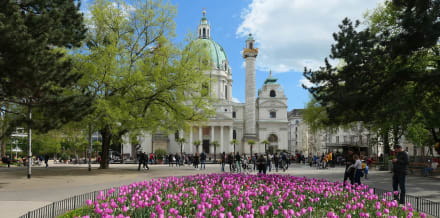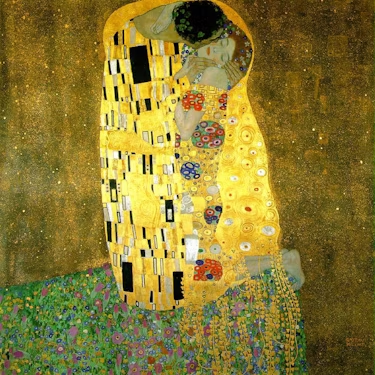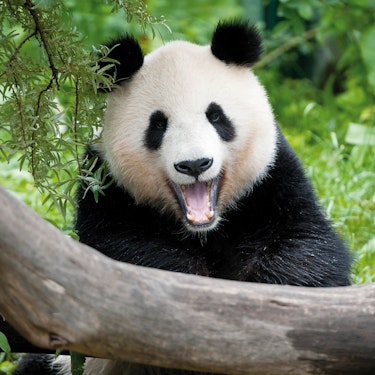More about: 10 Things to Do in Vienna in the Spring
Spring is one of Vienna's most favoured seasons. As the good weather approaches, the city is decked out for festivals, concerts, sporting events and parties that only take place in the spring months. Another great attraction are the palace gardens and parks.
Vienna's weather in March, April and May is very changeable. It is easy to go from a sunny day to a cloudy one, or for rain and even snow to appear. So you need to plan both outdoors and indoors, but fortunately Vienna has no shortage of things to do and see.
1. The best time to see the palace gardens
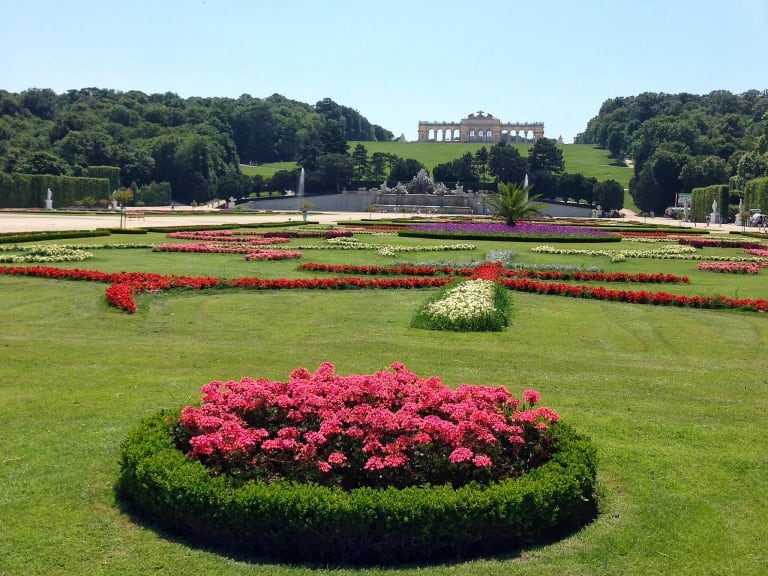
Vienna boasts one of the greenest cities in Europe thanks to its many parks and gardens. They are always worth visiting and strolling through, but even more so when spring comes and they are full of life and colour thanks to the blooming of flowers.
In keeping with Vienna's imperial air, the most beautiful and well-kept gardens are to be found in Vienna's palaces, true oases of peace and tranquillity amidst the hustle and bustle of the city. Of all the palace gardens in the city, I would especially recommend:
- Visit Schönbrunn Palace
- Belvedere Palace
- The Stadtpark or the Burggarten, which are really parks and the latter is famous for the statue of Mozart.
2. Celebrate Vienna's spring festival
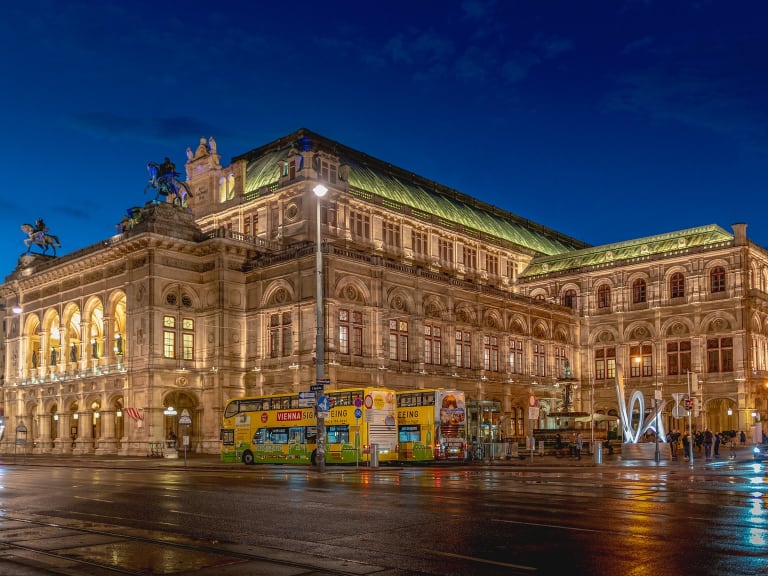
Since Vienna is the city of music, what better way to welcome spring than with a classical music festival. From the beginning of March until the end of April, the Vienna Spring Festival takes place in Vienna, with classical music concerts as the main attraction.
These concerts take place in the city's musical temples, such as the Opera House, the Musikverein and the Karlsalon, and feature the best performers of classical works by Mozart, Strauss and Beethoven.
The world-renowned Vienna Philharmonic Orchestra gives many of these performances, providing a unique opportunity to see and hear the world's best classical musicians. There is also room for other styles of music such as jazz and open-air concerts.
Useful information
- Venue: Vienna State Opera, Musikverein, Karlsalon...
- Date: from March to the end of April
- Price: there are free open-air performances and one for a fee.
3. Celebrate Easter in Vienna
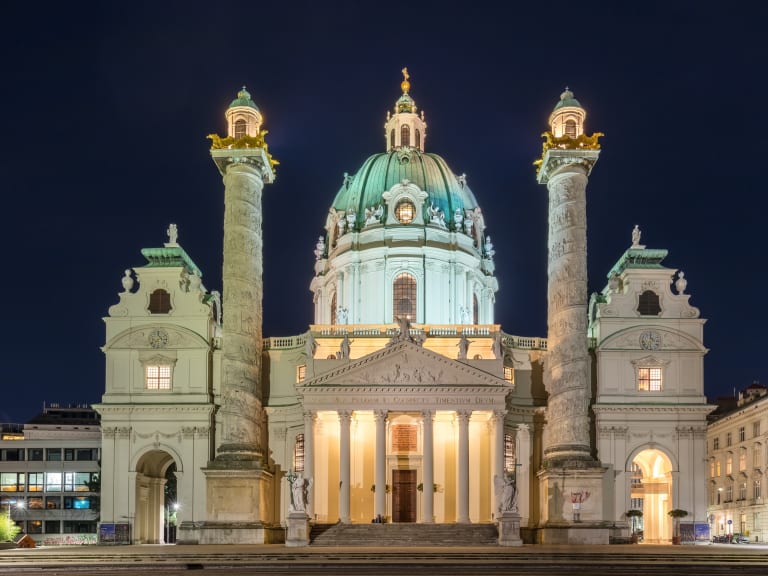
Most of Vienna's population is either Catholic or Protestant, so Easter is celebrated with fervour in the Austrian capital. During this week, events such as the Spring Festival and the Easter markets are combined with the more traditional Easter celebrations.
It is especially worthwhile to visit the city's churches, where special events such as choirs and concerts are held in some of them, such as St. Charles Church. Many of them are included in some city tours, so if you are interested I recommend you join one.
Besides the religious part, the Easter egg hunt is also a tradition. Although tradition dictates that the egg hunts take place at the end of Easter week, the city's bakeries start preparing these chocolate delicacies during the school holidays.
4. Experience Mozart Week in the middle of spring

In mid-April, the culmination of Vienna's spring festival is known as Mozart Week, in honour of the famous composer with close ties to the city.
Although he was born in Salzburg, Mozart lived in Vienna for several years, some of the most prolific years of his musical career. He is an institution in the capital, which is why he is paid tribute to during this week with several concerts in legendary venues, which you can buy tickets to attend. You can also pay your own tribute by visiting:
- The composer's house on Domgasse Street where he lived for three years during which he composed, for example, The Marriage of Figaro.
- The Mozart Monument in Burggarten Park.
- The House of Music in Vienna to learn more about Mozart.
Useful information
- Venue: Vienna State Opera, Musikverein, Karlsalon, Schoenbrunn Palace...
- Date: mid-April
5. Take a stroll along the Danube on sunny days

Many of the plans we have seen in this post are outdoors, because the sunny spring days lend themselves to it. But I can't close the list without telling you about one of my favourites and one of the Viennese themselves.
Taking advantage of the fact that the Danube runs through Vienna, a canal was built through the city centre and has been used to make a walk along its banks, perfect for opening terraces, mooring boats with swimming pools and bars or putting in small gardens.
This makes it an ideal place to spend a spring morning and exploit it on a bike tour of Vienna or to relax on one of its terraces or rest areas.
6. Take shelter in the museums

But spring is not all sunny days and clear skies. The rain also makes an appearance, and on more than one occasion, so it's a good idea to have a plan to take shelter. I can think of no better place than in the city's museums.
In Vienna there are dozens of museums for all tastes and some of them are considered to be the best in the world in their specialities. Among the best museums in Vienna, I recommend you:
- The Belvedere Palace Museum, where you will find the famous work of Klimt's kiss among other gems.
- The Kunsthistorisches Museum, with an impressive collection of classical art.
- The Albertina Museum, with drawings and engravings by Renoir, Monet, Picasso, Miró and Magritte, among others.
- The impressive Museum of Natural History or the Museum of Art History.
7. Go to the Easter markets
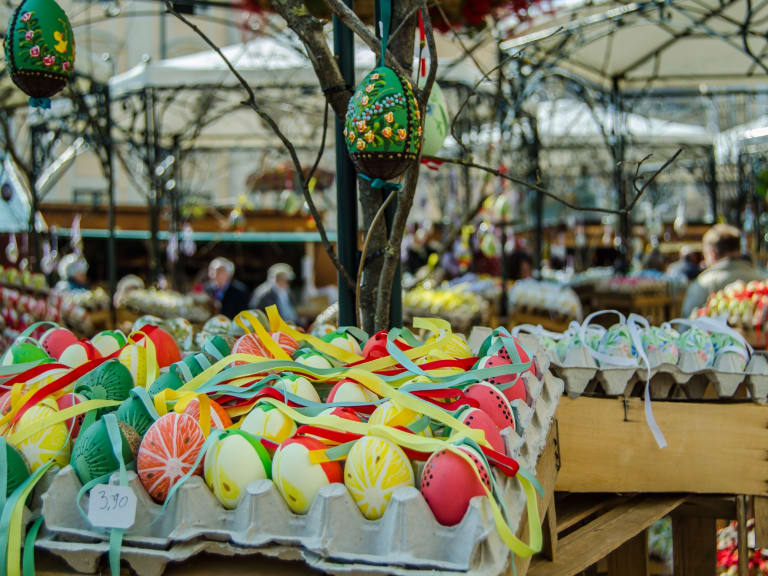
Vienna is perhaps the city with the longest tradition of markets in Europe, and the Easter markets are a good example of this. Viennese and visitors alike flock to the markets to buy handmade goods from the stalls, sample the street food or enjoy the activities organised.
At Easter the most important markets in the city open on 1 April until the end of Easter week around 18 April and are held at:
- Schoenbrunn Palace (the largest)
- Freyung Square
- Am Hof Square
- and Prater Park
8. Run or enjoy watching the Vienna Marathon

Spring is also a time for sport, and the Viennese like to take advantage of the time to get out in the parks or on the banks of the Danube. But there is one event above all else, and that is the Vienna Marathon.
This is one of the most important running events in Europe and brings together thousands of runners from all over the world, as well as passing through many of the city's major landmarks.
Whether you like to run or watch as a spectator, it's an event to behold. As a curiosity, part of the Vienna Marathon route was the stage chosen by the athlete Eliud Kipchoge to break the world record of covering the 42 kilometres of a marathon in less than two hours.
Useful information
- Place: start from Danube Island, finish at Heldenplatz.
- Date: end of April
- Price: 36€ 10 km, 89€ half marathon, 115€ full marathon.
9. Enjoy delicious coffees and sweets on the terraces

One of the locals' favourite traditions is to go to the cafés for a sweet treat with coffee or an ice cream and a stroll through the centre of Vienna. That's why when spring brings good weather the city's cafés set up their terraces to the delight of locals and visitors alike.
Vienna is home to some of Europe's most prestigious cafés, which are well worth a visit in spring:
- Café Sperl on Gumperdorfer Strasse.
- The famous Café Central in Herrengasse.
- The terrace of the Sacher Hotel and try the legendary chocolate cake of the same name.
10. Experience the Styrian spring in Vienna
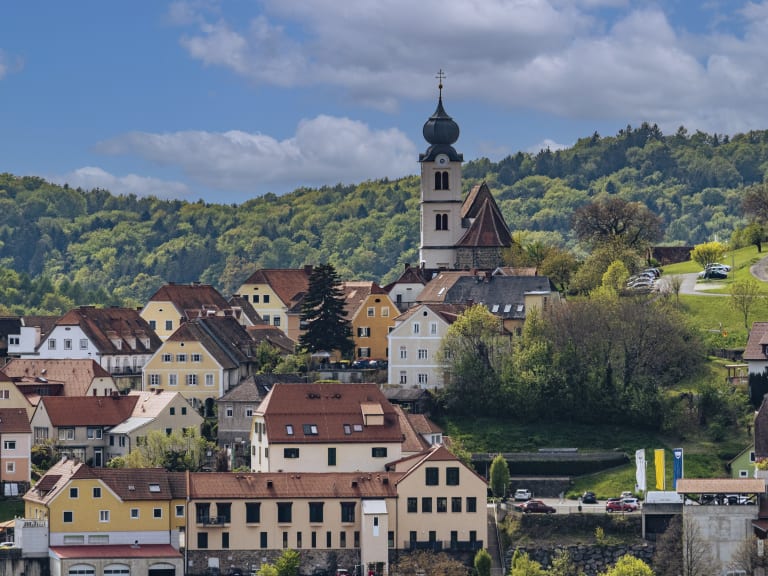
Styria is a region of Austria itself commonly known as the "Green Heart", as it is an area full of forests, green meadows and high mountains. And what does this area have to do with Vienna? Well, such is the beauty of this area that Vienna itself tries to recreate it in what is known as the Styrian spring.
To do so , they set up a market in the Rathausplatz, or town hall square, and fill it with stalls and vegetation in an attempt to recreate a Styrian village.
Also, many of the traders dress up in traditional Styrian costumes and many of the stalls offer local dishes. As it is also a wine-growing region, Styrian wines are a must for a celebration of spring.
Useful information
- Date: Mid-April
Temperatures in Vienna in spring

If there is one word for Vienna' s spring weather, it is "changeable". Sunny and cloudy days are just as common, not to mention rain and even snow in early spring.
Temperatures start below 10 degrees Celsius (50 degrees Fahrenheit) and below freezing in mid-March and rise to over 10 degrees Celsius (50 degrees Fahrenheit) and above 20 degrees Celsius (68 degrees Fahrenheit) in May.
On average there are 50 per cent cloudy days in the spring months and a 20-30 per cent chance of rain, with May being one of the wettest months of the year. Even in March with the first days of spring it is possible to get snow, although the probability is low. Temperatures are still cold in the first weeks of spring.
Tourist traffic and prices in Vienna in Spring

Summer and Christmas are the busiest times for tourists in Vienna, followed by spring. The gradual arrival of good weather and holiday periods such as Easter attract quite a few tourists to the Austrian capital. However, it is the perfect season to have a good balance between the influx of visitors and good weather.
Vienna is still expensive and in spring prices remain similar to summer, but you'll find it easier to find hotels and deals, so in most cases you'll find it cheaper than in July or August.
Easter week is an exception as demand rises during this holiday period and prices go up slightly.
What to pack for a spring visit to Vienna

Since the spring weather in Vienna is changeable and almost unpredictable, you should be prepared. In order to be able to deal with all possible scenarios, here's what to pack for a trip to Vienna in spring:
- In general, the weather in spring is cool but pleasant, so** long-sleeved and light clothing** is best.
- Don't forget to pack jumpers or warmer clothing, especially if you're travelling in early spring.
- Coats are still highly recommended especially for evenings, rainy days and early spring days in March.
- Bring mackintoshes or umbrellas and waterproof clothing.
- Prioritise comfortable, waterproof footwear.
